Opinion: why UWE Bristol is championing immersive arts as a 21st Century artform

Verity McIntosh, associate professor of Virtual and Extended Realities at UWE Bristol, explains why a new £3.6m Immersive Arts programme will explore the potential of art and technology, and engage artists from across the UK.
From losing yourself in a good book, to belting out your favourite song with friends at a gig, or being moved by an artwork that seems to speak directly your heart - art has always had the power to be immersive, profound, provoking, transformative.
In recent years, the term ‘immersive’ in the arts has started to take on an additional meaning, one that specifically refers to the melding of art and spatial computing technologies such as virtual, augmented and mixed reality as a way to actively involve the audience in an immersive experience.
Artists around the world are now exploring new ways to push the limits of tools that were primarily designed for productivity. They are leveraging and bending them instead, to make artwork that bridges physical and digital spaces, engages multiple senses, and connects people to each other and to their environment.
Here in Bristol, venues such as Wake the Tiger, Lost Horizon, and Watershed’s new Undershed immersive gallery offer new and exciting immersive encounters for eager audiences. Bristol-based artists like Anagram, Duncan Speakman and Antonia Forster are winning awards around the world for their incredible immersive artworks. Bristol companies such as Ultraleap, Air Giants and Condense are revolutionising what can be done with technology; bringing gesture and touch into virtual worlds, creating massive, soft, responsive robots, and streaming live 3D video performances into virtual spaces, respectively.
At UWE Bristol, we are proud to be an active part of this exciting community and are dedicated to transforming education and research to meet the demands of a rapidly evolving world. In teaching, our students are supported to incorporate immersive technology as an integral part of their creative toolkit. In research, UWE Bristol’s Digital Cultures Research Centre has long been established as one of the world’s leading hubs for the study of Evolving Media. Our fantastic facilities across Bristol include the VR Lab, The Bridge Studios, Pervasive Media Studio, and an innovative headset-free virtual reality and simulation CAVE system.
But we are not just keeping pace with the changes in the arts and technology sectors – we are helping to shape them.
UWE Bristol has just launched a new programme called ‘Immersive Arts’, a UK-wide research, training and grant funding programme, designed to support over 200 artists to engage with immersive tools and technologies. The scheme offers an inclusive and accessible programme of funding, training, research, and events for artists in England, Scotland, Wales and Northern Ireland to explore the potential of immersive tools within their creative practice. The first round of funding, opening very soon, will invite artists to apply to one of three funding schemes, ranging from £5,000 to £50,000.
We recognise there are huge structural inequities in the way that people are and are not empowered to engage with the arts. We also know that these inequities can become amplified and entrenched when technology is involved. We believe that immersive arts, as a 21st Century artform, contains within it the opportunity to resist that trend, and to reject some of the historical prejudices and hierarchies of older arts and media industries.
There are signs of change everywhere. Recently, immersive experience venue Outernet overtook the British Museum and Natural History Museum to become the most visited tourist attraction in London. A recent report from the Immersive Experience Network found that audiences who attend immersive experiences now are more representative of the UK population than those of ‘traditional’ arts and culture.
Working with an incredible consortium of partners across the UK, the Immersive Arts programme is committed to fostering a UK-wide network that supports diverse voices and ensures equitable opportunities across regions and communities. By centring accessibility and inclusion, we aim to build a sustainable, vibrant arts ecosystem that represents the population that we live within.
Immersive Arts will be running training, events, mentoring and research activity around the UK, and distributing £3.6m in grant funding to artists between now and January 2027. For more information and to join the mailing list visit immersivearts.uk
Related news

12 December 2025
Arnolfini appoints Professor Paul Gough as new Chair of Trustees
Arnolfini, partner organisation of UWE Bristol, has appointed Professor Paul Gough as its new Chair of Trustees.

13 November 2025
Bristol’s screen industry experiences “boom-and-bust cycle” after post-pandemic recovery, new research from UWE Bristol finds
New research from UWE Bristol provides detailed insight into Bristol's screen sector.

30 October 2025
Lecturer shortlisted for prestigious European photography award
Dr Amak Mahmoodian, senior lecturer in photography at UWE Bristol, has been shortlisted for the Deutsche Börse Photography Foundation Prize 2026.
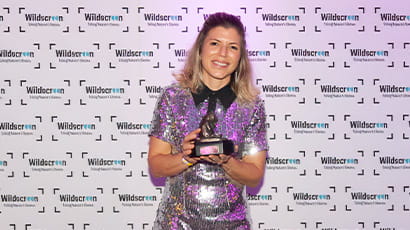
27 October 2025
Graduate wins second industry award for breakthrough film
Tatiana McCabe has won a Wildscreen Panda Award for her documentary which follows a local hero protecting coastal wildlife in Uruguay.

02 October 2025
Documentary by UWE Bristol graduate airs on national television
Hannah Tyson, a UWE Bristol MA Filmmaking graduate, is celebrating the broadcast of her documentary ‘Jazzy’s MMA Dream’, which has aired on CBBC.
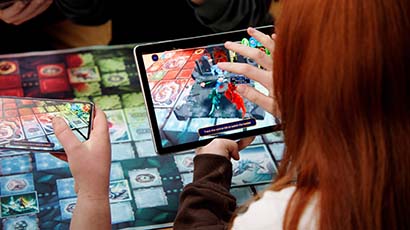
11 September 2025
New study to investigate augmented reality as an intervention for emotionally based school avoidance
A UWE Bristol researcher will support a new study exploring whether an augmented reality board game can help young people with emotionally based school avoidance (EBSA).
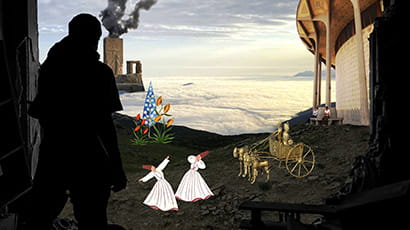
26 August 2025
UWE Bristol MA students present Showcase at Spike Island
Students from MA Fine Art, MA Graphic Arts, and MA Multi-Disciplinary Printmaking will exhibit their work at the Showcase MA Degree Show, from 4 September.

23 May 2025
Academics feature in documentary exploring the rebirth of Bristol's iconic Megascreen
Professor Mark Bould and Professor Charlotte Crofts are featured in a new documentary about the fascinating journey of the former Bristol IMAX cinema.

21 May 2025
Students reveal creative responses to real-world experiences at UWE Bristol Showcase
UWE Bristol’s Showcase, celebrating student creativity and innovation across the College of Arts, Technology and Environment, returns this June.
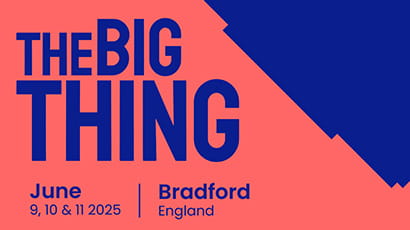
19 May 2025
The Big Thing, a landmark event for immersive artists in the UK, comes to Bradford
Immersive Arts will launch its first major event this June in Bradford, the UK’s City of Culture, to bring together the country’s immersive arts community.
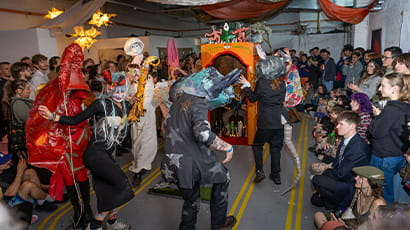
17 April 2025
UWE Bristol art students showcase work at Spike Island Open Studios
Spike Island – the home to UWE Bristol’s BA and MA Fine Art courses - opens its doors for the annual Open Studios on 2 May.
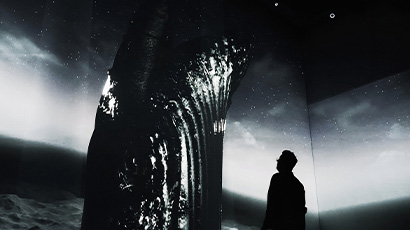
16 April 2025
More than 80 UK projects receive nearly £1.2 million in first Immersive Arts funding round
Almost £1.2 million has been allocated to 83 artist-led projects across the UK.
You may also be interested in

Media enquiries
Enquiries related to news releases and press and contacts for the media team.
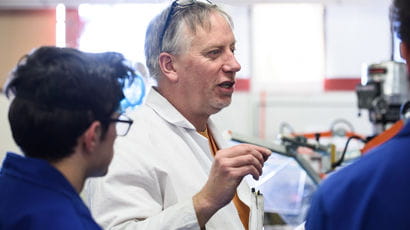
Find an expert
Media contacts are invited to check out the vast range of subjects where UWE Bristol can offer up expert commentary.






